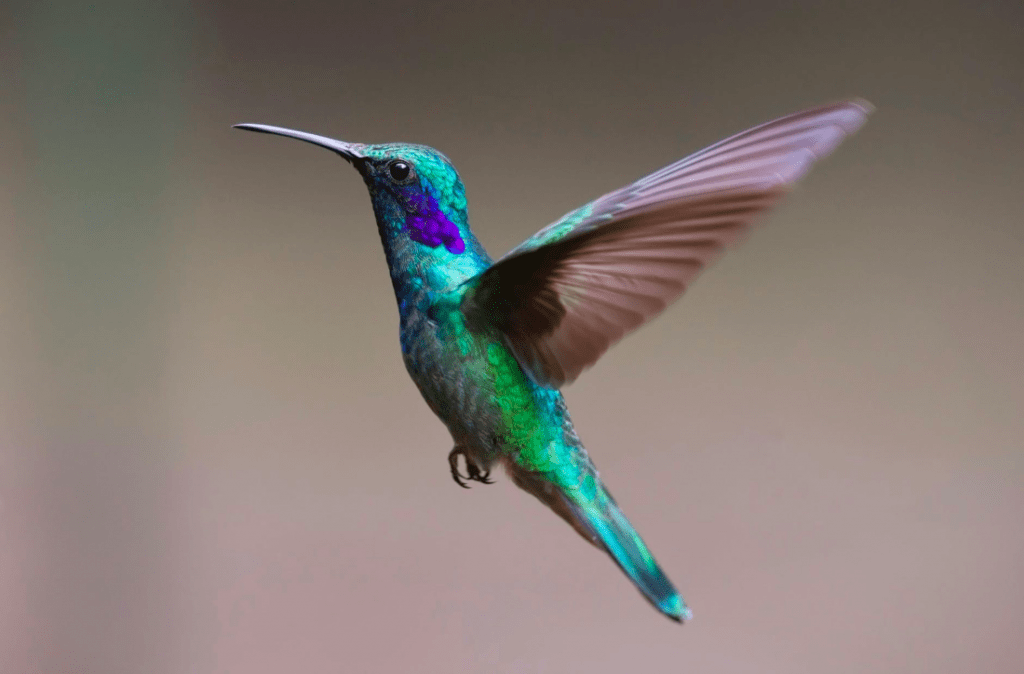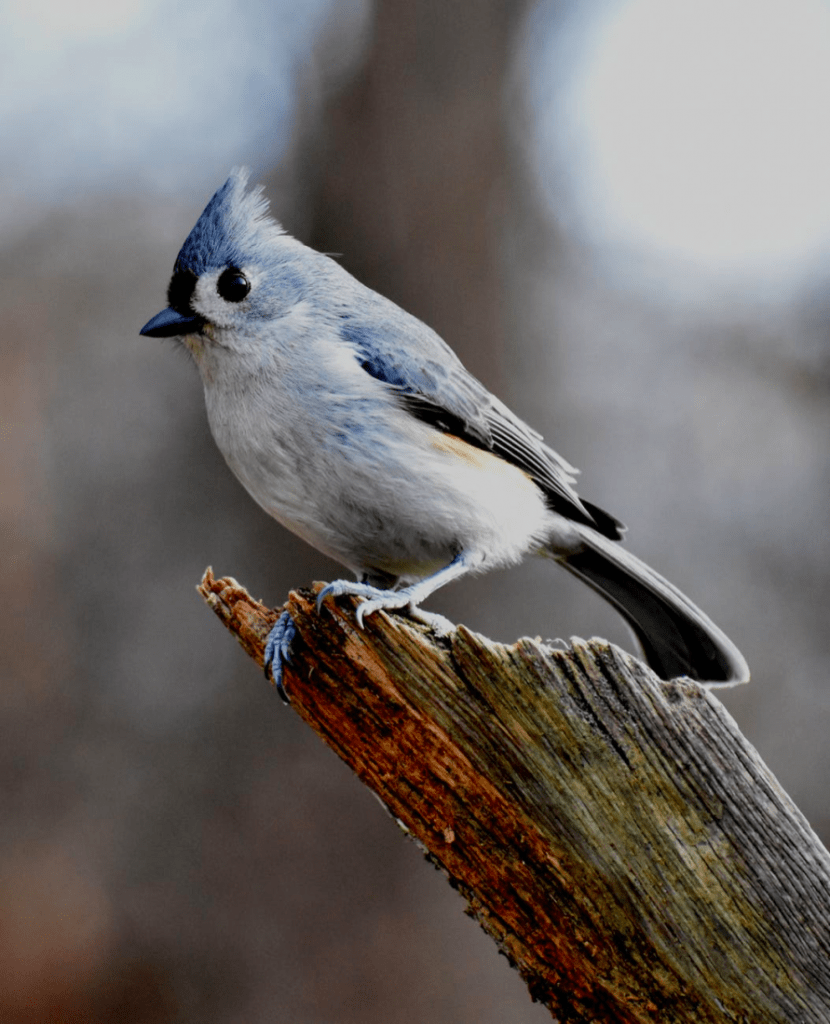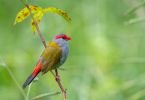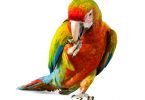Many bird health problems can affect the life of our bird. It not only makes life difficult for the poor bird, but you also face challenges. Therefore, you must know the signs of the bird health issues so that you can treat it. Other than this, knowing which breeds are more prone to getting a specific condition should also help you to take extra care for those breeds. To make this easy for you, we are going to discuss some of the common bird health problems in this article.
Diseases that are common in certain breeds
While you are thinking about the pet bird health issues, you also need to know about breed-specific diseases. Yes! You do not need to fret as not all diseases attack all types of birds. Just relax and have a look at the details about the problems found in specific breeds of birds.
Bird Health Problems | Breeds at risk |
Avian Flu | All breeds |
Parasites | Canaries, Cockatoos, Cockatiels, Budgerigars, wild-caught birds |
Psittacine Beak and Feather Disease | Psittacidae family especially parrots, budgerigars, macaws, etc. |
Egg Binding | Smaller bird species, such as finches, cockatiels, budgerigars, lovebirds, parakeets and, overweight birds |
Stress | All breeds |
Angel Wing | Waterfowl birds such as geese, ducks, and swans |
Avian Botulism | Fowls, pheasants, turkeys, waterfowls, for instance, ducks and geese and most wild birds |
Avian Keratin Disorder | Woodpeckers, Chickadees, Crows, Nuthatches, as well as other members of the corvid family |
Avian metapneumovirus | Turkeys, Broilers |
Avian vacuolar Myelinopathy | Bald eagle and American coot |
Canarypox | Passerine birds such as magpies, canaries, and nightingales |
Fatty liver hemorrhagic syndrome | Chickens |
Pacheco’s disease | Parrots |
Passerivirus | All Breeds |
Pigeon pox | Pigeons |
Polydipsia in birds | Waterfowl birds such as Ducks, pigeons, and budgerigars |
Proventricular dilatation disease | Most breeds especially Macaw |
Puffinosis | Manx shearwater, Gulls, Northern Fulmar |
Scaly foot | Galliformes, passerines, psittacine |
Let’s have a look at these bird health problems in detail.
Avian Flu
Other names of Avian Flu are bird flu or Avian influenza. Avian flu is a fatal disease of lung and airway. Therefore, you should be vigilant enough to recognize the symptoms and provide immediate treatment. Otherwise, your bird will die. Avian influenza can affect all breeds of birds such as domestic or pet birds, wild birds, and poultry.
Symptoms
Symptoms of Avian flu include:
- Depression
- Swelling of the head
- Lack of appetite
- Discharge from the eyes
- Breathing problems
- Diarrhea
Treatment
Avian influenza spreads through direct contact with feces, saliva and nasal discharges of an infected bird. And above that, it is also infectious to humans. Therefore, if your bird shows symptoms of avian flu, you should quarantine it immediately. In addition, contact your vet for immediate diagnosis and treatment. Treatment depends on the specific virus infecting the bird. Though there are vaccines for avian flu, there is a doubt about its effectivity in birds.
Parasites
Parasites are one of the serious bird health problems. Here’s a list of some of the common parasites that can infect your birds:
Aspergillosis
Aspergillus is a fungus that affects the respiratory system of a bird. The infected bird shows symptoms such as nasal discharge, difficulty breathing, weight loss, abnormal or unusual droppings (including diarrhea) and eye crustiness. Contact your vet when you see such signs. Your vet may prescribe antibiotics to treat Aspergillosis. Whereas keeping the environment clean is the key to prevent Aspergillosis.
Giardia
Giardia is a parasite that affects the gastrointestinal tract of a bird. Birds infected with Giardia display symptoms such as itching, severe weight loss, diarrhea, and hence dehydration. Moreover, the birds infected with Giardia may become more vocal and display feather-plucking.
Sarcocystis
Although it is less common than other parasites but it is a fatal infection. Sarcocystis can affect the bird’s lungs and pulmonary system and neurological system. Apart from that, it can also cause muscular disease.
Scaly Face Mites
Scaly Face Mites, as the name suggests, occurs as scaly grows on eyes, mouth, beak, and nostrils. Moreover, scales can also occur on the bird’s legs. As a result, birds lose their feathers. And their beaks and legs also appear deformed.
Treatment
Firstly, according to symptoms, your vet will diagnose the exact problem of your bird. Secondly, the vet will prescribe the optimal treatment for your bird. However, he may prescribe specific oral or topical anti-parasitic medications for external parasites and oral or injectable medications for internal parasites. In addition to this, it is important that you disinfect the bird’s environment, including perches and toys, food and water bowls and its cage.
Psittacine Beak and Feather Disease
Psittacine Beak and Feather Disease (PBFD) is a contagious disease. In this fatal disease, a circovirus affects the cells that produce feathers and the beak. It also affects the cells of the immune system. The disease spreads by direct contact with dander or feces, from the dust of feathers and infected nest boxes.
Symptoms
Some of the symptoms of Psittacine Beak and Feather Disease include:
- Bloody shafts in the feathers
- Loss of pigment in colored feathers
- Clubbed feathers
- Sharp feathers
- Loss of powder down
Treatment
As mentioned in the symptoms above, the bird becomes depressed for days and then die suddenly. Since there is no effective treatment, it is better to prevent this disease. For that purpose, you need to emphasize on keeping the environment clean. As a result, you will be able to prevent the virus from spreading. Otherwise, the only option you are left with is to euthanize to stop the disease from spreading.
Egg Binding
Egg binding is when a bird takes longer than normal to lay an egg. It is a common reproductive problem and also a fatal condition in which death can occur within hours. Therefore, it is important to keep an eye on its signs so that you can provide your bird an immediate treatment, consequently.
Symptoms
Some of the symptoms of egg binding in birds include:
- Swollen abdomen
- Difficulty breathing
- Decrease in appetite
Treatment
Since it is a problem of the reproductive system, the causes of egg binding include problems with the reproductive tract. Moreover, metabolic problems or poor diet, such as calcium deficiency also contribute to the occurrence of this disease. Besides, some other reasons include being overweight and issues with the egg itself. Therefore, don’t wait if you find these symptoms and contact your vet immediately. Your vet will prescribe treatment based on the underlying cause. However, treatment options may include warming, feeding fluids to prevent dehydration and deflating the egg inside the uterus. In addition to that, your vet may consider giving medication to induce muscle contractions, manually expelling or surgical removal of the egg.

Stress
It doesn’t matter what kind of bird you have, there must be some common health problems in birds related to stress. Moreover, stress not only affects the health of a bird. But it also affects its behavior. Therefore, you should be well aware of the signs of stress that your bird displays.
Symptoms
Signs that your bird is stressed include:
- Stress Lines/Bars
- Destructive behavior
- Fear
- Aggression
- Loss of appetite
Treatment
To eliminate stress symptoms, you need first to understand why your bird is not living its life to the fullest. In other words, you need to identify the cause of stress. Birds can become stressed due to malnutrition or inadequate diet. Moreover, noise, boredom or changes in the environment can also stress a bird. Hence, what you can do is identify the cause of stress and then eliminate that cause.
Angel Wing
This condition is usually associated with waterfowls. Angel Wing is a deformity of the last joint in either one or both wings. Consequently, instead of lying flat against the body, the wing twists unnaturally outwards. And as a result, they can’t reach food resources and are unable to feed themselves properly. These birds are also left behind by the flock. Above that, the damage is irreversible in mature birds. However, the condition is quite reversible in young birds if their diet changes dramatically.
Symptoms
Symptoms of Angel Wing include:
- The wing no longer lies flat against the body
- The wing looks twisted
- The bird is unable to fly
Treatment
Young birds are more prone to develop angel wing deformities. Genetic predisposition also plays its role. Moreover, High protein, high energy diets and environmental factors do contribute to the development of Angel Wing. Its treatment requires instant action. Otherwise, the wing will remain to deform forever. Therefore, contact your vet immediately if you find these signs.
Avian Botulism
Avian botulism is a paralytic disease. It occurs when a bird ingests toxin produced by the bacterium Clostridium botulinum. The virus blocks nerve function. As a result, musculoskeletal and respiratory paralysis occurs, which may pose a serious threat to your beloved pet.
Symptoms
Symptoms of Avian Botulism include:
- Loss of muscle function and paralysis
- Birds are unable to use their legs and wings
- They are also unable to control the third eyelid, neck and other muscles
Treatment
Fortunately, it is one of the few bird health problems that we can manage effectively. Therefore, you can treat these common health issues in birds by isolating the birds and providing them food and water. Consequently, your vet may prescribe antibiotics and vitamins as well. Moreover, you can prevent and manage the disease by removing source of the toxin, removing dead birds and supplying clean feed and water. In short, you need to keep the environment clean to keep the illness away from the bird.
Avian keratin disorder
Avian keratin disorder of beak deformities in birds is becoming one of the bird health problems these days. Therefore, you have to take care of your pet and protect them in any case.
Symptoms
It would be quite obvious if your bird’s beak is deformed. However, some additional symptoms of Avian keratin disorder include:
Beak is not symmetrical
- Misalignment of the beak
- In severe cases, the bird is unable to eat
- Discolored beak
- Lack of grooming
Treatment
Since treatment depends on the underlying cause of a disorder, it is important to rule out the cause and then treat it. Sometimes, the causes of this disorder include environmental contaminants. On the other hand, nutritional deficiencies, fungal or parasitic infections, bacterial or viral infections also serve as contributing factors. Even though the condition is not threatening, instantly, but it is serious enough to contact your vet immediately. Your vet may opt to trim the beak.
Avian metapneumovirus
Avian metapneumovirus(aMPV) is a viral disease. However, it is associated with an acute respiratory tract infection of turkeys. But, the virus also causes swollen head syndrome in broilers and broiler breeders.
Symptoms
Symptoms include:
- Respiratory signs such as nasal discharge, sneezing, foamy conjunctivitis
- Drop-in egg production
- Swollen head
Treatment
For aMPV infections, currently there is no treatment. However, your vet may prescribe antibiotics to treat secondary infections.
Avian vacuolar Myelinopathy
It is a newly discovered neurological disease that is found in bald eagles. As it is a neurological disease, it is quite fatal. A strain of epiphytic cyanobacteria found on plants causes the disease. Therefore, when a Waterfowl consume that plant, they ingest the bacteria. And when bald eagles and other raptors prey upon the infected waterfowl, they, consequently, contract the disease.
Symptoms
Since it is a neurological disorder, researchers believe that the lesions on the brain and spinal cord cause the death of birds that ingest this bacterium. However, the exact cause is still not known. Symptoms of Avian vacuolar Myelinopathy include:
- Infected birds flying into objects, such as rock faces
- Tremors of the head
- Lack of coordination in walking and flying
- Beak and tongue weakness
Treatment
As it is a newly discovered disease, there is little information about its treatment. However, you need to keep a close eye on what and how your bird is doing.
Canarypox
Canary Pox Virus (CNPV) infects many species of birds. However, avipoxviruses cause a serious damage to canaries. The symptoms of canarypox are:
Symptoms
- Infected birds have crusted areas of the non-feathered skin such as eyes, beak, face
- Thickened plaques occur in the face especially mouth, sinuses or throat
- Weight loss
- Rapid breathing
- Fluffed up feathers
Treatment
Canary Pox is a fatal disease. And above that, there is no cure for it. However, birds recover if you provide supportive care to them. Other options include controlling mosquitoes.
Fatty liver hemorrhagic syndrome
The fatty liver hemorrhagic syndrome is a disease that occurs mostly in hens. Its name might give you the idea that it is a metabolic or nutritional disease. Hens with this disease have fat deposits on the liver and abdomen. As a result, the liver becomes large and becomes prone to bleeding. When the hen tries to lay an egg, hemorrhage occurs. In some cases, blood loss due to hemorrhage causes death.
Symptoms
Affected birds may have pale combs and are usually overweight. However, the hens generally show few or no symptoms before death. Therefore, you need to work closely with them.
Treatment
The principal cause of this disease is excess calorie intake. In addition to this, mycotoxin aflatoxin, stress, and calcium deficiency also contribute to this disease. Therefore, contact your vet to identify that cause. So, he may provide you with appropriate treatment.
Pacheco’s disease
Pacheco’s disease is a deadly illness in birds. It is caused by herpes-virus. Though it occurs in other bird breeds as well, it, especially, affects parrots. Generally, symptoms of following bird health problems appear between three to seven days of infection. But, not all birds display symptoms.
Symptoms
Following is the list of symptoms:
- liver damage.
- Listlessness.
- Diarrhea.
Treatment
For the treatment of Pacheco’s disease, we recommend you to check the symptoms and then follow the following steps:
- Use oxidizers to disinfect contaminated surfaces.
- Quarantine the suspected bird.
- Use acyclovir in an early stage to cure the bird.
- Proper vaccination (available in markets) and medication.
- Consult your vet regularly.
Pigeon Pox
Likely, most of the bird health problems are viral diseases; one of them is Pigeon pox. Indeed, it attacks pigeons all over the world. As we know, viral infections affect during a specific season; pigeon pox is also a seasonal disease. Most cases are seen at the start of winter and in the humidity of summer. Mosquitoes cause it. However, this disease does not affect humans and other animals. Pigeon pox generally lasts around 3 to 4 weeks. You can, subsequently, save your bird with appropriate treatment.
Symptoms
Symptoms of pigeon pox include:
- Weakness.
- Soiled facial feathers.
- Warts.
- Edema of eyelids.
- Emaciation.
Treatment
As discussed above that pigeon pox is a viral disease; therefore, the chances are low that pigeon pox wanes by itself. A vaccine for the virus is available in the market. Consequently, we can help our birds to escape this disease if we follow the prevention plan and ensure the vaccination.
Polydipsia in birds
Sometimes birds take an extra amount of natural substances or toxins, and, as a result, they get affected by Polydipsia. For example, foods like chips, crackers, fast foods, and canned vegetables are the leading causes of such bird health problems.
Symptoms
However, these symptoms will help you to find either your bird is at risk or not.
- Liver disease
- Increased liquid component
- Weakness
- Exhaustion
Treatment
Treatment varies according to the bird’s condition. For example, if any of the bird health problems attack a specific organ, we will medicate that particular organ, consequently.
Although, for faster recovery, change in environment and diet helps. But, sometimes, in severe cases, one must go for inpatient treatment. Moreover, good nutritional therapy helps better.

Proventricular dilatation disease
Proventricular dilatation disease disease is also known as Macaw wasting illness. Likely, in Macaws, but it affects 50 other pet birds too. Although PPD mainly attacks the stomach, it can also affect other organs like the brain and spinal cord. In short, it is a fatal disease.
Symptoms
Even though it is a deadly disease, you must keep an eye on the following symptoms. So, you can contact your vet immediately.
- Regurgitation.
- Poor appetite.
- Ataxia.
- Weight loss.
- Weakness.
Treatment
Firstly, there is no registered treatment for PPD. Secondly, to cure your bird, you can go for the following steps:
- Provide supportive care.
- Use anti-inflammatory drugs.
- Treat any other diseases within the bird.
- Assist your bird in feeding, if needed.
- Isolate the positive bird.
Puffinosis
Manx shearwaters started this viral disease. However, most of the bird breeds are still safe from this infection. But, it has affected northern fulmar and gulls like Manx shearwaters.
Symptoms
To find out either the bird is infected or not, one must see the following symptoms:
- Pink colored eyes.
- Blisters on feet.
- Movement issues.
Treatment
Even though the researchers are still working on these kinds of bird health problems, there is no cure for Puffinosis.
Scaly foot
The rough foot is also known as Knemidocoptiasis. It is often found in caged birds. Sometimes, it also affects other bird species. It is one of the bird health problems that are caused by mites. As a result, the bugs make tunnels in the skin and cause scaly lesions and dermatitis. The disease affects mainly the face and legs of birds.
Symptoms
Bird health problems like rough foot can be fatal. To prevent your bird, you must check the following symptoms:
- Thickening of skin.
- Tassel foot.
- Misshapen toes or feet, beak
- Feather loss/Feather plucking
Treatment
For better treatment, you should follow the following precautions:
- Disinfect the cage.
- Make sure to clean the toys and other things of your birds
- Use medicine to eliminate mites
Conclusion
Although there are many diseases in pet birds, treatments are available for most of the issues. However, we have listed some of the health issues, along with their symptoms. You just have to keep an eye on the signs that your bird shows the common diseases in birds. And then contact your vet immediately. Consequently, you will be able to save your bird healthy and happy. And you will also be satisfied that you are taking good care of your pet. Therefore, a little amount of affection and caring attitude from your end may bear fruitful results.






